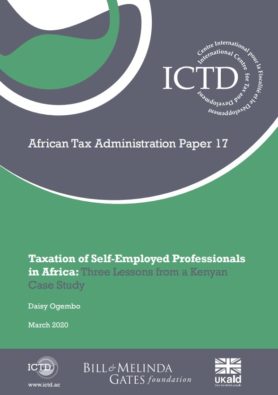African Tax Administration Paper 17
We currently know very little about the taxation of professionals in Africa – scholarly work on this group of taxpayers is scant. The little research that does exist is located within the literature on the taxation of the ‘hard-to-tax’, a term in tax evasion literature that refers to farmers, small and medium-sized enterprises, and professionals. However, scholarly discourse on the hard-to-tax in low- and middle-income countries, particularly in Africa, has focused primarily on farmers and small and medium-sized enterprises. Professionals are rarely critically considered, despite the acknowledgement in the literature that, considering their potential earnings, the absolute amount involved in evasion by professionals in low- and middle-income countries is probably higher than farmers and small and medium-sized enterprises. This paper begins from the premise that it is sensible to begin to focus more seriously on self-employed professionals in the policy and administrative efforts aimed at increasing tax collection from the informal sector in Africa. Proceeding on that premise, the author provides three lessons that we can learn from a Kenyan case study on taxing selfemployed professionals in Africa.
